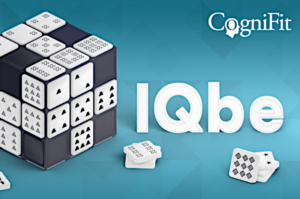
How Computer-based Training From CogniFit Affects Children’s Executive Functions & Academic Performance
As parents, we are always looking for what is best for our children. We want them to grow up to be healthy, happy, and successful. One of the best ways to set our children up for future success is to provide them with the best possible education. But like in so many areas in the fast-paced, high-tech world we all live in, it can be difficult to keep up with how new technologies are changing our traditional methods of teaching and whether these new tools are actually making a difference.
This is why CogniFit scientists have been teaming up with researchers from around the world to study how computer-based training affects the learning outcomes, executive functions, and academic achievement of children.
About the Study

Using computers in schools and other academic settings is not a new idea. In fact, educators have been using computers as an educational tool for decades. However, the body of research into how these tools affect the cognitive executive functions (EFs) that are critical to academic performance remains incomplete and ambiguous.
So, researchers from the Faculty of Education at the University of Murcia (Murcia, Spain), the Center for Cognitive Research at University Antonio de Nebrija (Madrid, Spain), and the Arctic University of Norway (Tromso, Norway), developed a scientific study to “investigate the effects of a computerized game-based training program on EFs and its impact on academic performance…”
The study, which was carried out across more than two dozen schools, took place over 8 weeks. Participating students we asked to complete 3 sessions of 15-20 minutes each per week, with a pre- and post-intervention assessment of the students’ executive functions and information on each student’s academic performance used to measure the efficacy of the intervention.
About the Methodology
Based on the existing body of research on executive functions and learning, the research team identified several executive functions—described as “neurocognitive mechanisms that control thoughts and behaviors aimed at achieving a goal or objective”—which play a fundamental role in the development of skills in language and mathematics as well as in processing and organization of information.
The team grouped the executive functions into three core areas in line with the general consensus throughout the scientific literature: Inhibition, Cognitive Flexibility, and Working Memory.
These three principal executive functions served as the focus for the intervention and the pre- and post-intervention assessments.
Beginning in January of 2021, students across the 26 participating schools were given the pre-intervention evaluation coinciding with the beginning of the academic period, followed by an eight-week experimental intervention, in which the students were assigned to experimental and control groups. A week after completing the classroom intervention, and coinciding with the end of the same academic period, the students completed the post-intervention assessment.
The pre- and post-intervention assessments included a range of measurement tools including the Childhood Executive Function Inventory (CHEXI) to assess executive functions and cognitive abilities such as working memory, planning, regulation, and inhibitory control, the Flanker task to further measure inhibitory control, and the Simon task to measure response time.
In addition to these assessments, the participating students’ academic performance was estimated based on their grades from the corresponding academic periods (the pre-intervention assessment coincided with the end of the first period, while the post-intervention assessment coincided with the completion of the second academic period).
CogniFit’s cognitive assessment and training programs were used for the assessment as well as for the computer-based training intervention program. The program was designed to be integrated into the school routine with the support of the teachers. Teachers received a brief, 30-minute initial training in order to familiarize themselves with the program. Each class had to do 3 sessions per week (preferably on alternate days) for 8 weeks. Each session included 3 games and lasted approximately 15-20 minutes.
A minimum of 14 sessions was established as the objective to be achieved in order to complete the training program. Performance was automatically recorded and uploaded to a server where researchers could confirm compliance. Tutors received information by email or phone once every 2-3 weeks.
What did the Researchers Find?
 Researchers Found Promising Results and Topics for Future Research. (Photo by Annie Spratt on Unsplash)” class=”wp-image-85342″/>
Researchers Found Promising Results and Topics for Future Research. (Photo by Annie Spratt on Unsplash)” class=”wp-image-85342″/>After the study was completed, the researchers were able to begin processing the data and found some very promising results, though there are still many questions and future studies to be done.
The results showed an improvement within the training group in the assessments exploring inhibition and working memory, as well as in academic performance, compared to the control group. In contrast, no significant intergroup differences were observed in the chronometric tests measuring inhibition. These results highlight the relevance of computerized EF training programs as part of the educational activities developed at schools.
The results revealed a clear-cut improvement in the academic performance of students who completed the Computer-based Training, which is in line with other recent studies. The improvements took place in the subjects related to language and sciences, suggesting “a significant contribution of the [Computer-based Training] in learning in a school context”.
These findings build on the numerous studies that corroborate the direct relationship between executive functions and academic performance. This improvement of executive functions may also affect other key aspects in learning and academic performance such as the verbal factor, logical reasoning, problem-solving, reasoning, planning, or skills related to reading.
However, the research team does note that despite the overall positive results in this study, the claims made in their analysis must be interpreted with caution, saying “future studies should be aimed at exploring additional components, such as cognitive flexibility”.
For more information on CogniFit research, you can visit our CogniFit Research page, outlining our long-term research, partnerships, and more.





































